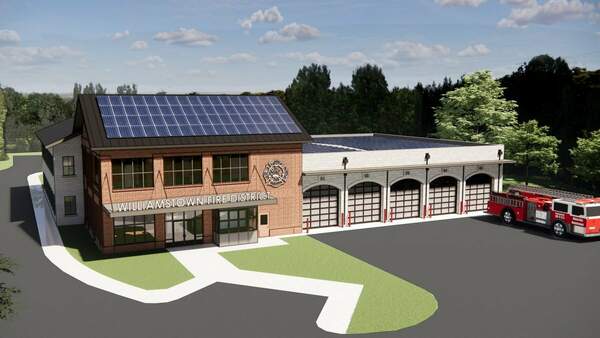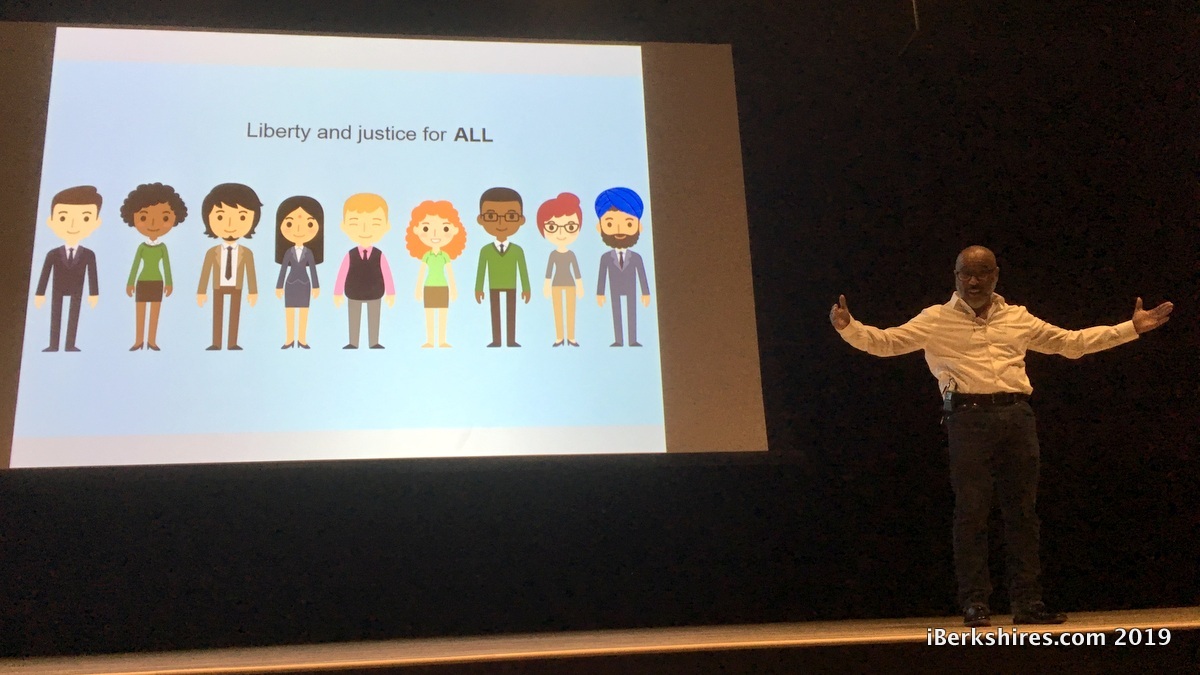
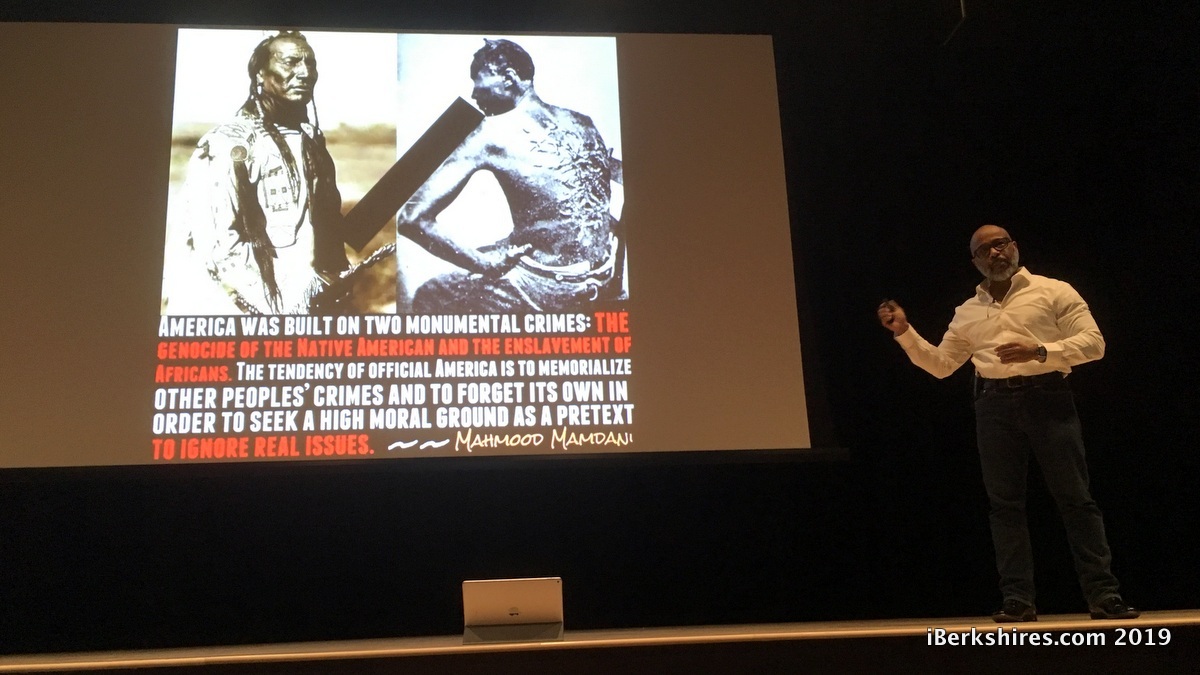
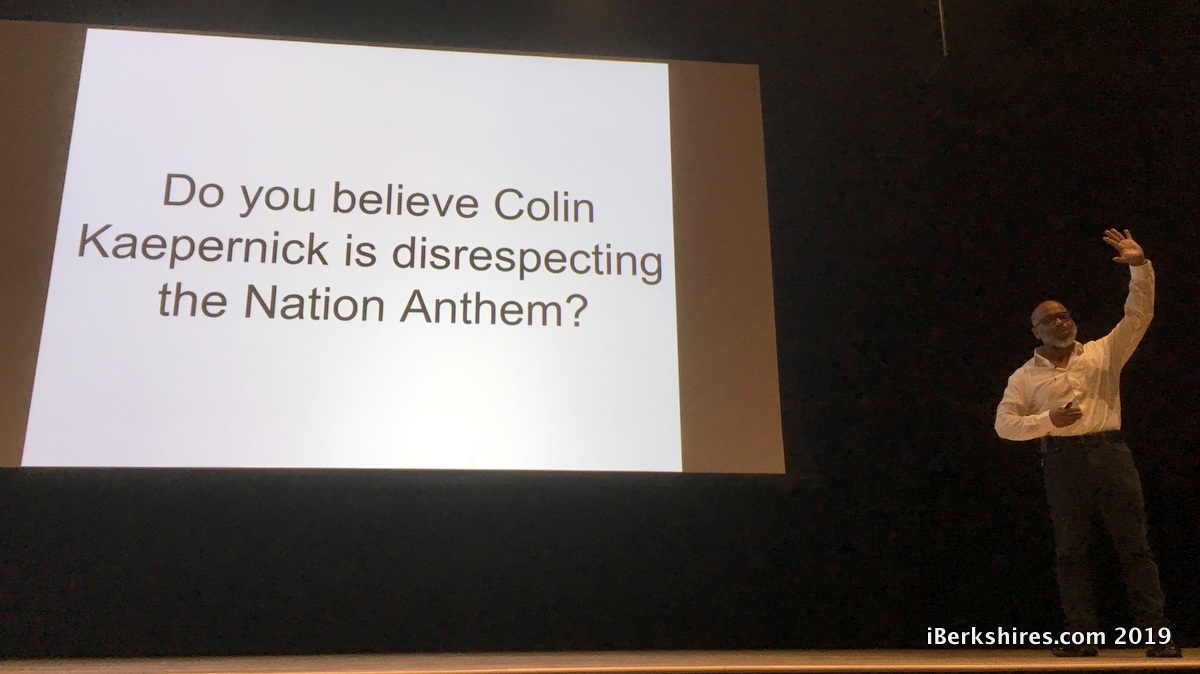
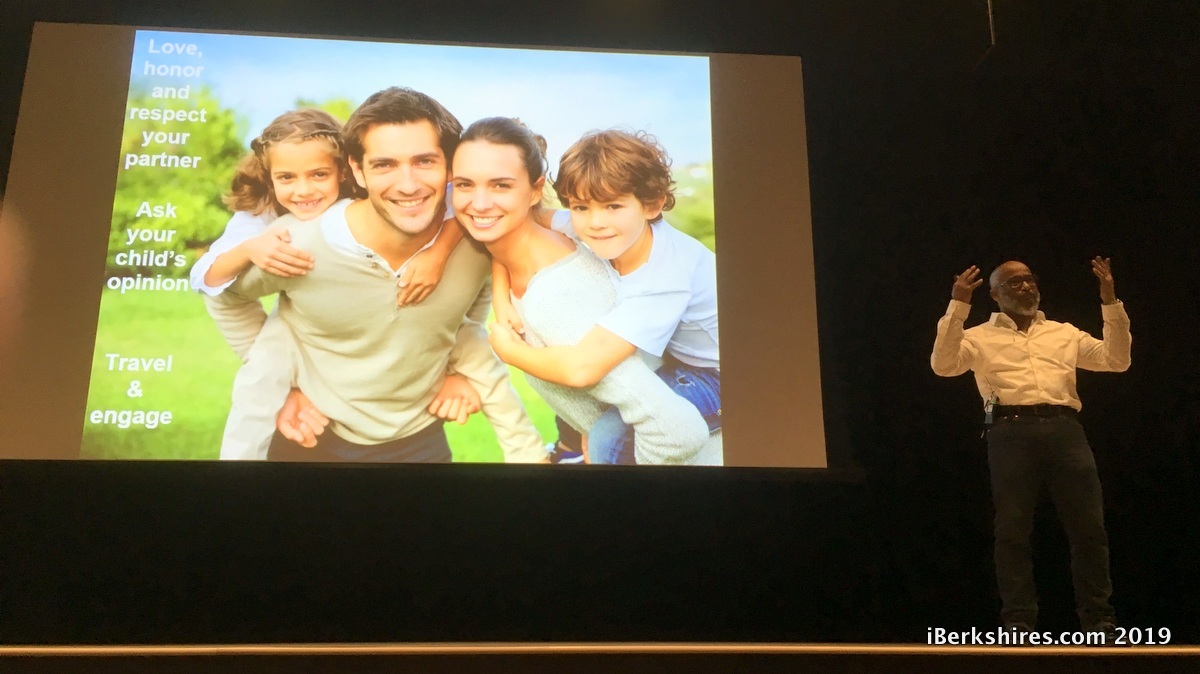
Mount Greylock Audience Urged to Have 'Courage' to Fight Racism

WILLIAMSTOWN, Mass. — When author and educator Ty Allen Jackson asked the audience at a talk on racism how many of them believed Colin Kaepernick was disrespecting the flag by kneeling during the national anthem, not a single hand in the Mount Greylock Regional School auditorium went up.
"OK, thing's over, nice to meet you," Jackson joked as he pretended to exit the stage, his work there done.
The audience laughed — and laughed later when Jackson said the mostly white community members who had come to see his talk appeared to be "woke." But even in this progressive little town in the corner of a progressive little state, there's plenty of work to do.
When Jackson opened up the program to audience comments, he heard from students and parents alike who have experienced racial bias in Williamstown. Jackson himself mentioned a friend whose child recently had to switch middle schools here in Berkshire County because the child was being called the "n" word at school.
So there's work to be done — and that work will involve white people doing the heavy lifting, he told the couple hundred people who came out on March 6 to hear his presentation in the brand new Mount Greylock auditorium.
"Racism is more of a white program than a black problem," he said. "It's not black people who are going to make this change. It's white people.
"It's going to take your courage to defend us," he said. "Together we can absolutely, positively do it. But it's going to take courage."
What that work actually is, however, is up for discussion, as there's no "manual," as he put it. But Jackson, the founder of Big Head Books, a literacy organization that aims to introduce children to the joys of reading, did offer a bit of a roadmap — in the form of history. Using a combination of slides, YouTube videos, news clips and more, Jackson walked the audience through the systemic barriers that have created racial inequality — and led to outright racism — in the 20th and 21st centuries — well past the obvious horrors of slavery, the Ku Klux Klan and segregation.
"Racism is so much more than slurs and tiki torches," he said. "It's a system built by our society and our government to hold people down."

Arguably the base of the racism of the past 75 years was the practice of "red-lining," which referred to the practice of denying services, such as home loans, to people of color. This allowed white people to own property and live in more prosperous areas while simultaneously leaving black people to live together in urban areas that became "the ghettos." Because schools are generally funded by property taxes, the schools in the white areas tended to be better than the schools in the black areas, furthering the educational advantages that white Americans received simply by virtue of their skin color. And in those nice suburban areas with good schools came good-paying jobs, widening the economic gap.
Then came the era of prison privatization and mass incarcerations of people of color, with policies such as those that treated possession of crack — typically a drug used by those with lower incomes — with higher penalties than cocaine — more typically used by those with higher incomes. Racial profiling also played a part in the imbalance of the racial makeup of people in prison, with policies such as "stop and frisk" disproportionally affecting minorities. And more recently, the issue of police brutality has shined a light on how many law enforcement personnel target and treat people of color.
Jackson spoke emotionally of the case of Tamir Rice, the 12-year-old shot and killed by police in Chicago while playing with a toy gun in a park.
"That's the one that makes my skin crawl," he said. "How many of our children have played with a gun in a park? It just hurts my soul when I think of this, and that that could have been my son."
Understanding this history and how it has led to movements like Black Lives Matter and the Kaepernick-inspired kneeling for the anthem is key toward finding a way to overcome it, Jackson said — even if there is indeed not a manual.
Jackson said he has hope that things will change, laying out several ways people like the Mount Greylock audience can help create a culture of diversity and tolerance. Some are pretty obvious: parents need to cultivate a well-developed family environment in which the adults treat each other and their children with respect.
"Happy children aren't racist. Happy children don't hurt other people," he said, adding that parents should actively seek out their child's opinions. "It allows them to realize … the person they love the most respects what they have to say."
Jackson also encouraged families to travel more if possible and engage with people outside of their communities who have different cultures and customs. Also, perhaps most dear and near to his "day job" of authoring and distributing books that have people of color as main characters, he suggested parents should provide diverse literature for their children.
Lastly, as Black History History month just wrapped up in February, Jackson said he wished "black history" would just become plain old history where the accomplishments of people of color would just be part of an everyday curriculum of history.
"History is not subjected to color," he said. "History is history."
Of course, conversations like this one at Mount Greylock are also important in order to effect real change, even if they can be uncomfortable to a predominately white audience.
"You are all on the right side of history," Jackson said to his Williamstown audience. "I'm proud of the people in this room. We're here because we care."
Tags: MGRS, racism,

 WILLIAMSTOWN, Mass. — The Prudential Committee on Wednesday signed off on more than $1 million in cost cutting measures for the planned Main Street fire station.
WILLIAMSTOWN, Mass. — The Prudential Committee on Wednesday signed off on more than $1 million in cost cutting measures for the planned Main Street fire station.